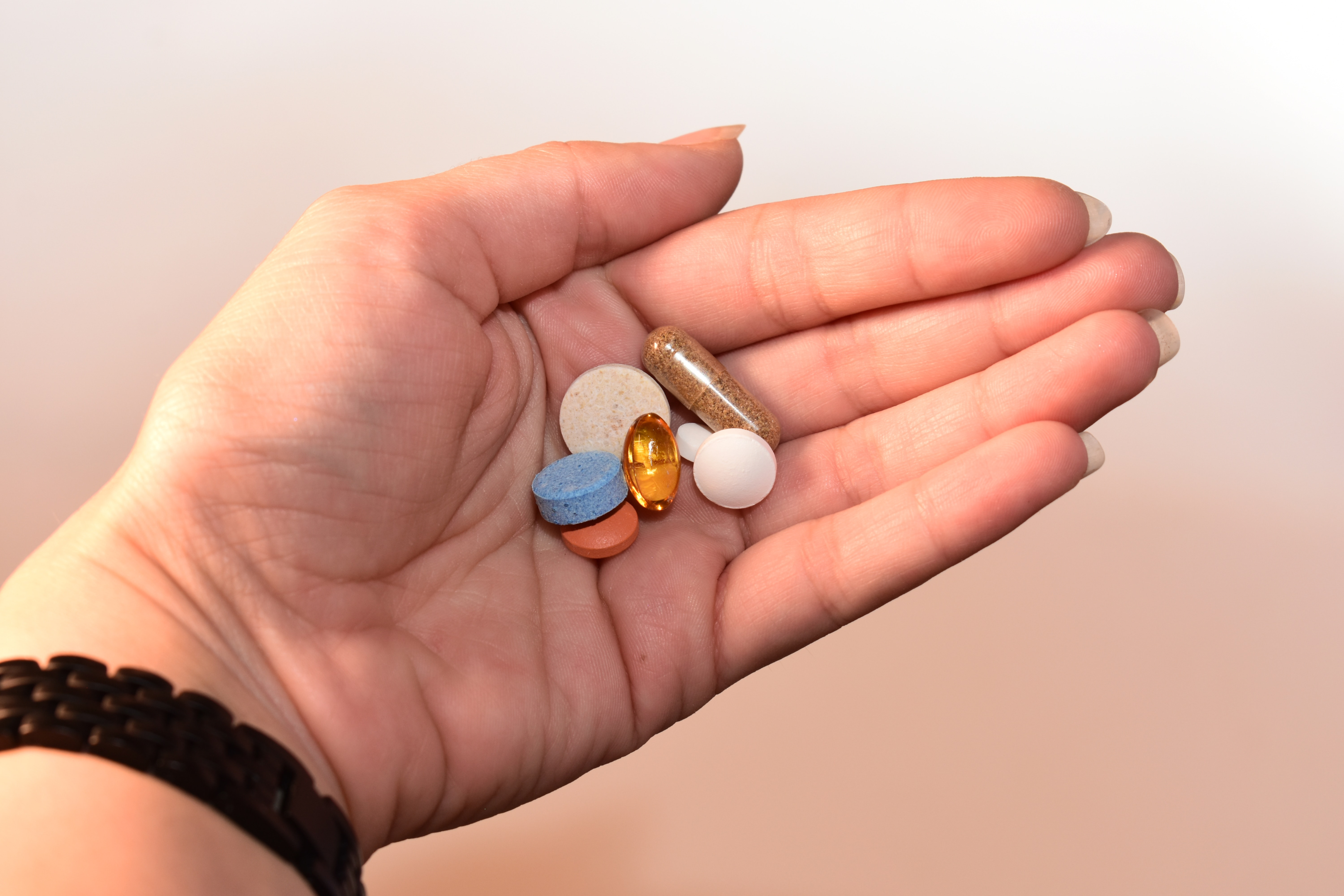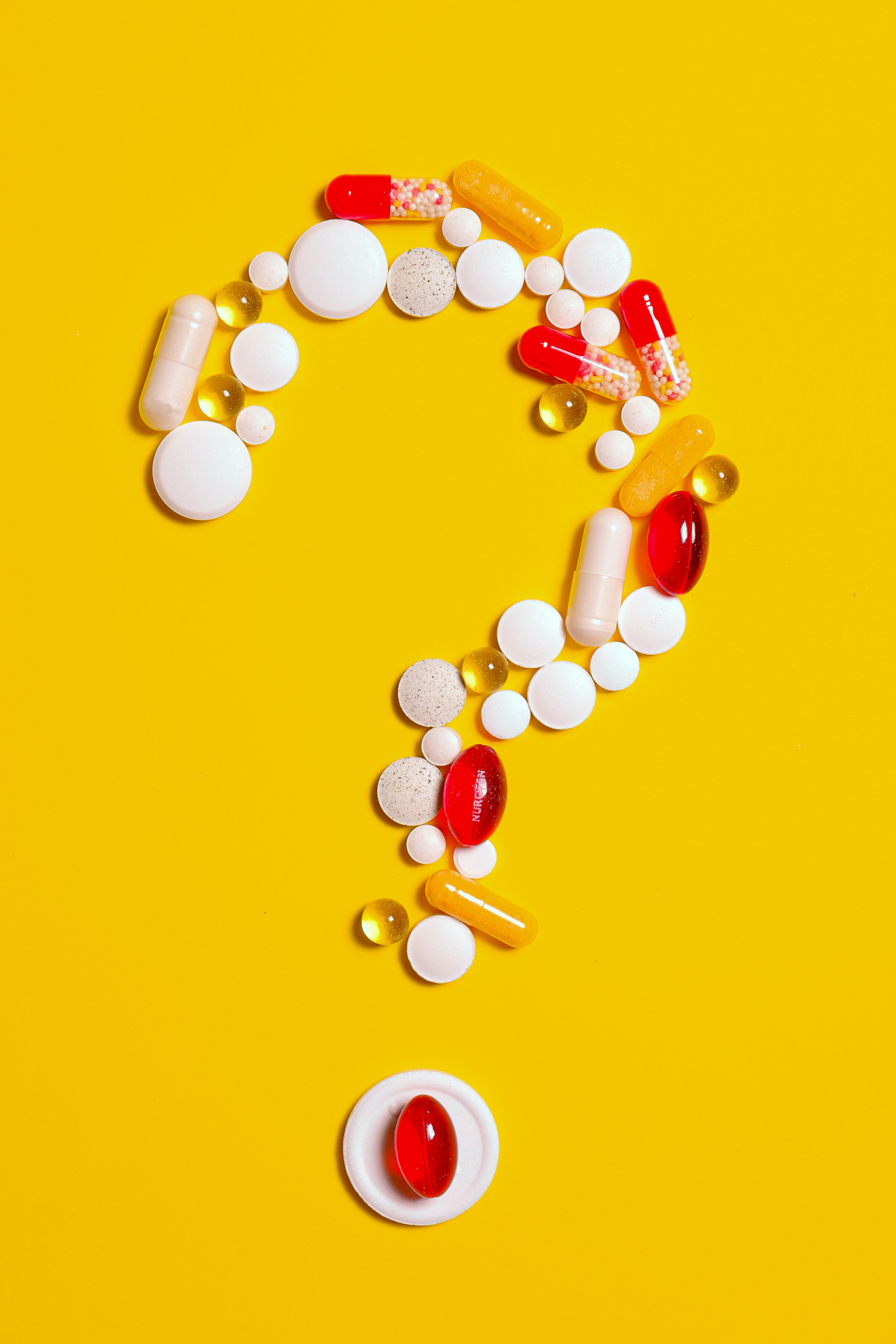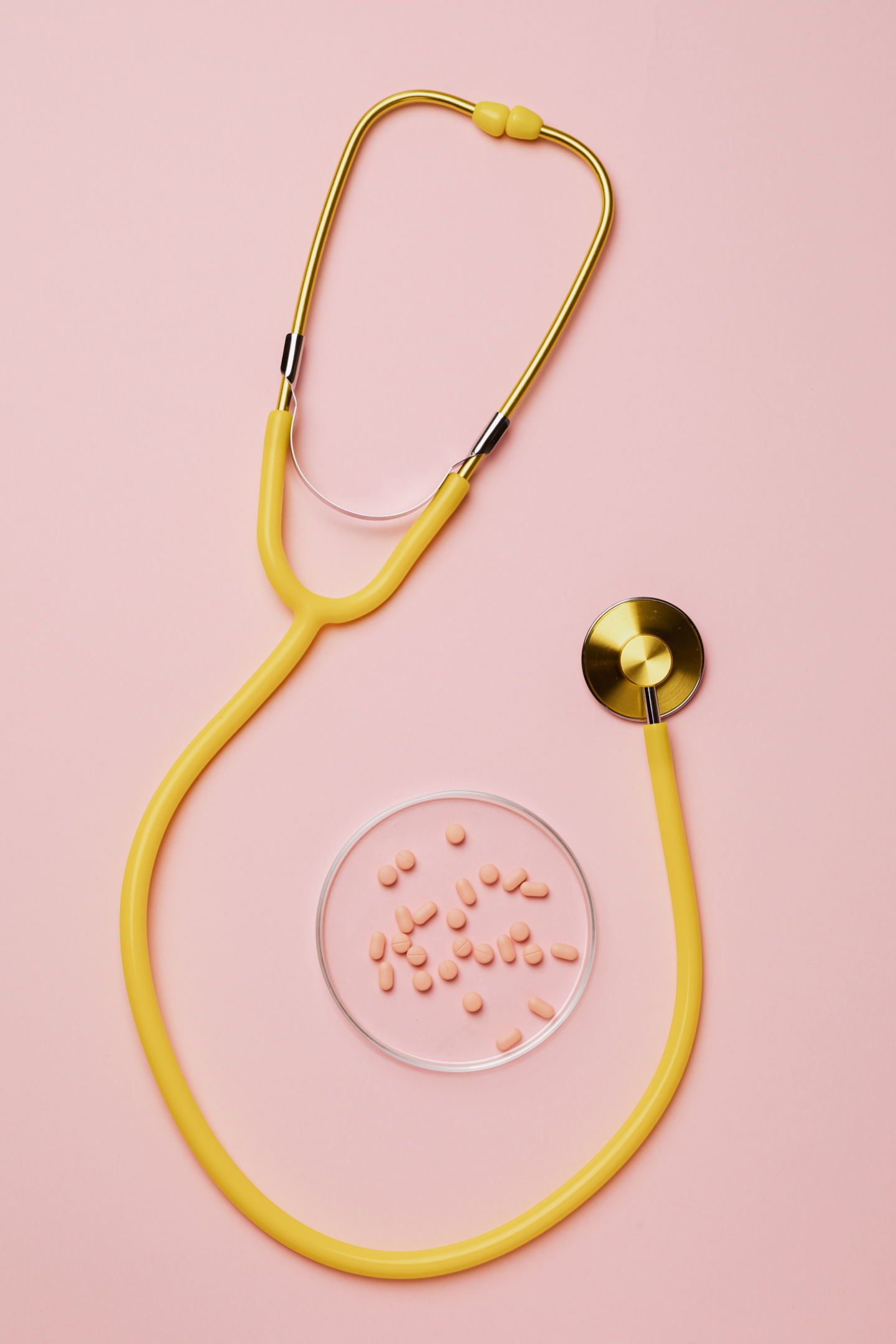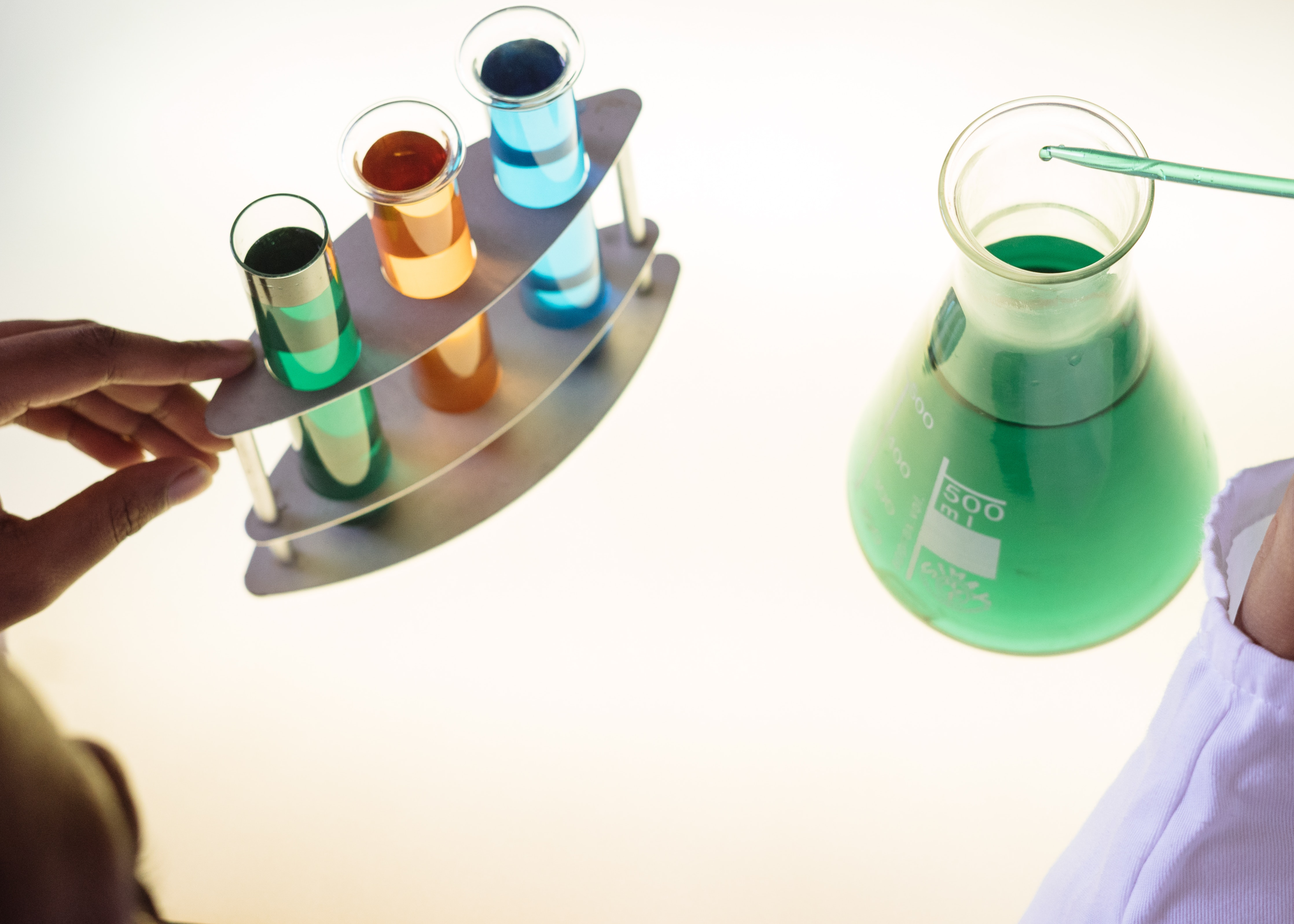Both prebiotics and probiotics perform certain functions in the human body, and unless you’ve been living under a rock during this gut health market bloom, you’ll know that both of these optimize your digestive system, and ensure that you don’t develop any disorders.

Though probiotics are generally more used than prebiotics, both of them have their core functions that make up for healthy gut flora, and that's what we're here to talk about today.
But with both of these supplements, that constitute to form gut bacteria, targeting your digestive health, there’s a question that is often asked, and that is can you take prebiotics and probiotics together?
We know you’re in a hurry for an answer, and we’ll make it as straightforward as we can.
You can take prebiotics and probiotics together, as prebiotics complement the probiotics to perform better, which we'll explain later. Doing so is medically called microbiome therapy.
This guide aims to get to the basis of each and everything that you need to know about prebiotics and probiotics, and answer your question of whether or not you should be taking them together.
Keep reading to find out more!
Firstly, What Are Probiotics?

Probiotic supplements are more important than ever now and equally as infamous in the gut health niche that's popularized right now.
But what are probiotics, and how do they help you in achieving a healthy digestion mechanism?
Probiotic bacteria are essentially the bacteria in your gut, termed gut bacteria, that help you in digesting food, regulate your immune system, and a lot of other functions. A blend of both yeasts and live bacteria, our body already has a plethora of these probiotic bacteria in the gut, which help us regulate our digestive tract.
The collective gut bacteria in our bodies constitute both good and bad bacteria, and that's just the way it's designed.
The good bacteria help the digestive system, while the bad bacteria - well, they're bad, can cause problems like digestive discomfort, inflammation, and various other problems that we've talked about on our blog.
Ever since the probiotic bacteria and supplement, the industry has bloomed, various studies have been conducted that connect the dots between using probiotic supplements and reduction in diseases like Irritable Bowel Syndrome, constipation, dysbiosis, and many others, while also bringing in health benefits like better moods, immunity, and others.
Though, the effect these probiotic bacteria-filled supplements have varies from person to person, which is why we always recommend talking to a professional before choosing a probiotic supplement.
You don't want them interfering with any other function of your body now, do you?
Top Picks For Probiotic SupplementsPrebiotics Explained Simply

Prebiotics, though share quite a similar name to probiotics, are an entirely different genre of probiotic bacteria that perform different functions, or better put, allow probiotic supplements to perform better.
As the name suggests, prebiotics do live in the gut, but they're made of complex carbohydrates that our bodies just can't digest.
However, they’re crucially important for probiotics, as they’re the food supplements for your probiotic bacteria, and help equip them for the fight against the bad bacteria in the gut.
They’re also quite important for the anaerobic probiotic bacteria, as they can’t be manufactured externally into supplements, simply because anaerobic bacteria can’t survive in oxygen’s presence.
Prebiotic supplements promote the growth of anaerobic bacteria in the gut, which regulate functions like perforation of bowel movements, diverticulitis, and more.
According to research, where probiotics are more focused on enriching the gut microbiome and preventing digestive problems like Irritable Bowel Syndrome, prebiotic supplements are more directed towards regulating the immune function, and overall small functions that better your digestive health.
Probiotics vs Prebiotics - What Are The Health Benefits?
Now that you know what probiotics and prebiotics are, it’s equally as important you know how they can help you, and what health benefits they bring with them that support your gut and bring a healthy balance in your body.

That being said, here are some of the most important health benefits that come with taking prebiotics and probiotics.
Prevent Constipation and Diarrhea
One of the most common reasons why people turn towards probiotic supplements is to reduce their risk of getting problems like diarrhea and constipation, and the science behind it all checks out.
Probiotics don't just prevent these problems from happening - They're great at solving them too.
Probiotic supplements, such as Restore Probiotic from Gistive, are loaded with a combination of different probiotic strains that target different intestinal problems and equip the gut with healthy bacteria to fight against these problems.
More than 25 recent studies have explained how probiotic supplements can greatly help against problems like travelers' diarrhea, with a lot of people claiming instant results and actions of these probiotic supplements in exterminating these digestive problems.
Strengthen Gut Integrity
You might associate the word ‘gut’ with something strong and resilient, but in truth, it’s a very sensitive part of the body, and something as little as stress can cause problems like inflammation in the gut.
That being said, there's something that we term the gut barrier in the digestive tract, which is a thin lining that prevents uninvited microbes from passing through and causing potential problems like IBS, constipation, dysbiosis, and more. Probiotic products, whether natural or supplement-based, are filled with these probiotic bacteria that strengthen your gut lining and bring a strong immunity to you.
They Help With Weight Loss
Though they’re not directly produced for this, probiotics play an important role in maintaining a healthy weight, and we’ll explain how.
There are a lot of different mechanisms as to how these healthy bacteria supplements can cater to weight loss, but the most factual one is that these probiotics prevent the absorption of fat in the intestine. When this excess fat isn’t digested in the body, it’s ultimately thrown out of the body in the form of poop.
That’s also the reason why you might be pooping a lot when you first start taking probiotics. Though, different studies suggest that weight loss and gain are linked to certain strains, so make sure your probiotic supplement has the right one!
Boosting Your Immune System
Some people, from their birth, are prone to falling ill a lot, and those seasonal changes and diseases hit these people pretty hard. The culprit behind this problem is usually a low immune function, and probiotics can greatly help in this case.
Certain Lactobacillus variants, like Lactobacillus crispatus, have been linked to a reduction in the risk of UTI in women, and while there's still a limited amount of research in this area, there's a lot of cases where people have exclaimed of good results in their immunity.
Prebiotics and Health Benefits
Though they're not as diverse in their effects as probiotics, prebiotics play an important role too and don't just exist as food for the probiotics. For example, these bad boys can actively change how your colon microbiota looks and performs, and they do that by resisting any hydrolytic activity in the gastrointestinal tract of the body.
In addition to that, prebiotics directly influence the increase of short-chain fatty acids or SCFA as the cool guys say it. SCFAs are highly important for your gut integrity and the gut lining and play an important role against disorders like diarrhea and constipation.
So, Can You Take Prebiotics and Probiotics Together?
We’ve gone over the basics. We’ve covered how both prebiotics and probiotics help the body, especially your intestine, to be in its best shape. Now, let’s finalize the answer to the real question that you're here for.

Yes, you can take prebiotics and probiotics together. Most of the probiotic products you'll find in the market are a mix of both of these, coupled together in a way that not only idealizes their delivery mechanism but increases their effectiveness.
Though most people only opt to take probiotics, we've seen that taking both of them increases the chances of it getting rid of the disorder you're facing, which can be anything from Irritable Bowel Syndrome, small intestinal bacterial overgrowth (SIBO), bad acid reflux, diarrhea, and more.
It's up to you whether you choose a supplement based prebiotic, opt for a 2-in-1 supplement that includes both, or use natural dietary supplements and foods to make up for your prebiotics. In the end, it's better for your gut health, and experts at Gistive recommend pairing up your probiotics with prebiotics.
The Best Time To Take Prebiotics and Probiotics
Let’s make this question easier, and divide it into two parts to make it easier for you to understand.

When it comes to taking both prebiotics and probiotics, we recommend having a good 10-15 minute difference between taking each. Always take a probiotic first, followed by a prebiotic supplement after the recommended time frame.
Though, 2-in-1 supplements negate this hassle, as both prebiotics and probiotics are put in a single capsule.
As for when you should be taking both of these, our recommendation, as well as scientific research, says that if you’re taking two pills a day, always take them first thing in the morning, and before sleeping.
If you're new to taking them, we recommend taking your probiotic before breakfast and letting the helpful bacteria do their job throughout the day.
Wondering how long it will take for your supplements to work? Here’s a quick guide to fill you in!
Are There Any Side Effects Of Using Prebiotics and Probiotics?
Both of these entities are generally considered safe overall, but as we’ve mentioned on our website countless times, it all depends on the person who’s taking them. Sometimes, they can have some mild side effects, which can include bloating, gas, or diarrhea when first taking probiotics or prebiotics.
This is because the sudden increase in beneficial bacteria can cause a shift in the balance of bacteria in your gut.
Though side effects usually subside within a few days as your body adjusts, and it's something that almost everyone taking prebiotics and probiotics for the first time goes through.
It's important to note that the side effects of taking probiotics and prebiotics are generally mild and short-lived. Though, in rare cases, some people may experience more severe side effects, such as infections or allergic reactions.
This is why it's important to talk to your healthcare provider before starting any new supplement regimen, especially if you have a weakened immune system or a chronic medical condition.
Expert Advice From Gistive
Both prebiotics and probiotics play a vital role in your gut health, but with the ever-increasing bloom of these products in the market, it’s important to have your basics straightened out, and know how they can be of good use to you, when to take them, and whether or not they should be taken together.
Experts at Gistive have done their best to answer your specific questions in this guide, but our best recommendation has always been to be patient and careful with these supplements.
If you think your gut health condition is more severe than usual, it’s best to consult a doctor or a professional in the field than just experiment on your own. Prevention is always better than cure, remember that!
Make sure to check out similar gut health guides on our blog, and be updated on how you can maintain your intestine condition and prevent similar disorders.

